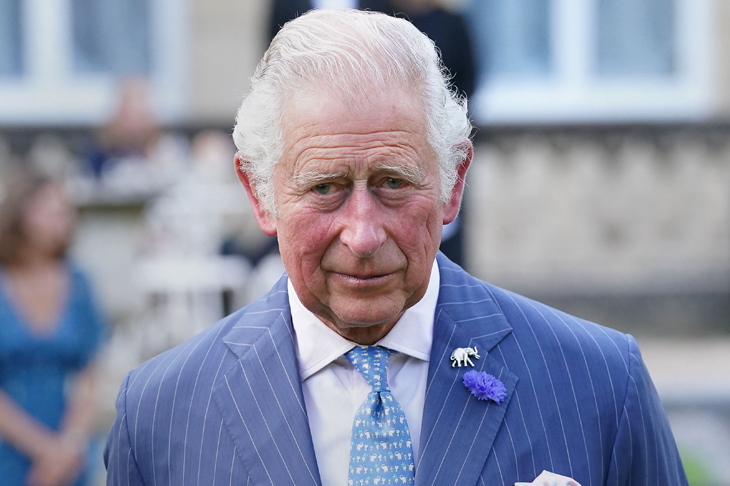History is full of tantilising ‘what ifs’. One relates to Britain’s Act of Succession. It was changed in 2015 to establish equality in the line of royal succession between males and females. If the change had happened before the death of Queen Victoria, the throne would have passed not to her second child, Edward VII, but to her eldest, Princess Victoria, the widow of Emperor Frederick III of Germany. She died seven months after Queen Victoria and would have been succeeded by her eldest child, none other than Kaiser Wilhelm II. This of course would have utterly changed the course of twentieth century history. The union of the thrones of Britain and Germany would have made it inconceivable that the two countries could have gone to war in 1914.
If Wilhelm II had become Britain’s king in 1901, Australia’s monarch today might well be the current head of the Hohenzollern dynasty, George Frederick, Prince of Prussia. His Australian subjects would probably have hit it off rather well with George Frederick, the founder of a brewery. And unlike certain other royals, he has never been a noisy campaigner for woke causes. But fate favoured the House of Saxe-Coburg-Gotha, in 1917 renamed the House of Windsor, and now we have Charles.
In contrast to the politically discreet Queen, Charles before he ascended the throne made no secret of his often controversial opinions on a wide range of issues. He criticised modern farming methods, became a part-time vegan, called Britain’s Rwanda plan for processing of illegal immigrants ‘appalling’ – which Boris Johnson rightly ticked him off for – and boycotted a visit by President Trump. In fairness, his interventions haven’t always been Green-Left: he’s made clear his hatred of modern architecture, described the handover of Hong Kong as ‘the great Chinese takeaway’, further irritated China through his friendship with the Dalai Lama and compared Putin to Hitler. But the cause which has animated him the most is climate evangelism. This has included advocating carbon taxes, touting net zero as if there’s a global consensus that it’s an uncontested good, arranging a meeting with Greta Thunberg while again shunning Trump at the 2020 Davos jamboree, and, most famously of all, launching the post-Covid ‘Great Reset’, in which he urged businesses to rebuild in ‘a sustainable and green way’, using ‘all the levers we have at our disposal’ – whatever that meant.
When he turned 70 in 2018, Charles acknowledged he was an ‘inveterate interferer and meddler’ but insisted this wouldn’t continue when he was King. ‘I’m not that stupid’, he said. ‘I do realise that it is a separate exercise being sovereign.’ Prominent defenders of the monarchy in Britain and Australia have been confident that Charles would indeed follow his mother’s example. They will have been disappointed by his recent antics. Arrangements for President Biden’s visit to London earlier this month were in radical contrast to those which would have prevailed were the Queen still on the throne. In an inversion of the usual protocols, Biden met Prime Minister Sunak for about 50 minutes, but spent two hours with the King, largely in a climate-focused ‘roundtable’ involving the US and UK climate envoys John Kerry and Grant Shapps. The focus of the meeting was no less than how the US and the UK could lead the world towards the net-zero future, including how to ‘encourage’ private companies to abandon fossil fuels and support ‘clean energy’.
Of course the Queen always received and extended courtesies to visiting heads of state, just as our Governor-General does. But it’s inconceivable that either would, accompanied by relevant ministers, meet a foreign leader to plot government policy on complex and controversial matters such as climate issues. Yet the unelected King waded into territory touching on potentially momentous economic and social transformation, with radical implications for the livelihoods of millions of ordinary people in Britain and his other realms – including Australia – who don’t share his $50 million income. There’s been surprisingly little comment on this democratic outrage. It would also be impossible to imagine the late Queen sharing the podium, as Charles recently did, with London mayor Sadiq Khan for the launch of his ‘Climate Clock’, a doomsday stunt billed as a ‘visual reminder of the urgency of the climate crisis’.
When the Palace is challenged about such activism, the response is that the science of climate change is ‘settled’ and that the issue is therefore above politics. The King’s father, for one, would have disputed that claim – he invited the distinguished Australian geologist, Speccie columnist and fellow climate change sceptic Ian Plimer to address the Royal Society, until the invitation was vetoed by Palace mandarins. And Princess Anne seems to have agreed with her father. In a little-noticed scoop by the Australian Women’s Weekly in 2020, she said ‘I don’t even go down the climate change route. Climate changes all the time. It has done so throughout the globe’s history, so there’s nothing new under the sun.’ She described some of her conversations with Charles as ‘rather short’.
The Sunday Times recently reported a Palace insider saying that the King’s reign would be ‘fundamentally different’ from that of the Queen. This wasn’t explained, but a pointer could be in what ‘sources close to Charles’ told the Guardian in 2014. They said he would not follow his mother’s discretion in public affairs, but would instead speak his mind on issues such as the environment. The Queen was said to be concerned about the potential style of the monarchy under her son.
For the moment the King’s activism has blurred the battlelines between republicans and defenders of the constitutional status quo. The mainly woke leftist republicans have been strikingly muted recently in their criticism of Charles. Meanwhile the monarchy’s defenders are in no less awkward a position, although few will likely defect to the republicans. But the King is playing with fire and, if he persists with his activism, tensions could easily develop with one or other of the governments of his realms. Australia is an obvious candidate for that if our next government were to be a conservative one and again rejected the currently fashionable international climate orthodoxies to which His Majesty is so attached.
Got something to add? Join the discussion and comment below.
Get 10 issues for just $10
Subscribe to The Spectator Australia today for the next 10 magazine issues, plus full online access, for just $10.
@markhiggie1
You might disagree with half of it, but you’ll enjoy reading all of it. Try your first month for free, then just $2 a week for the remainder of your first year.














Comments
Don't miss out
Join the conversation with other Spectator Australia readers. Subscribe to leave a comment.
SUBSCRIBEAlready a subscriber? Log in